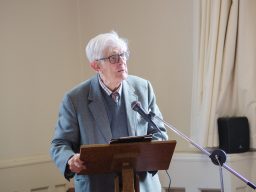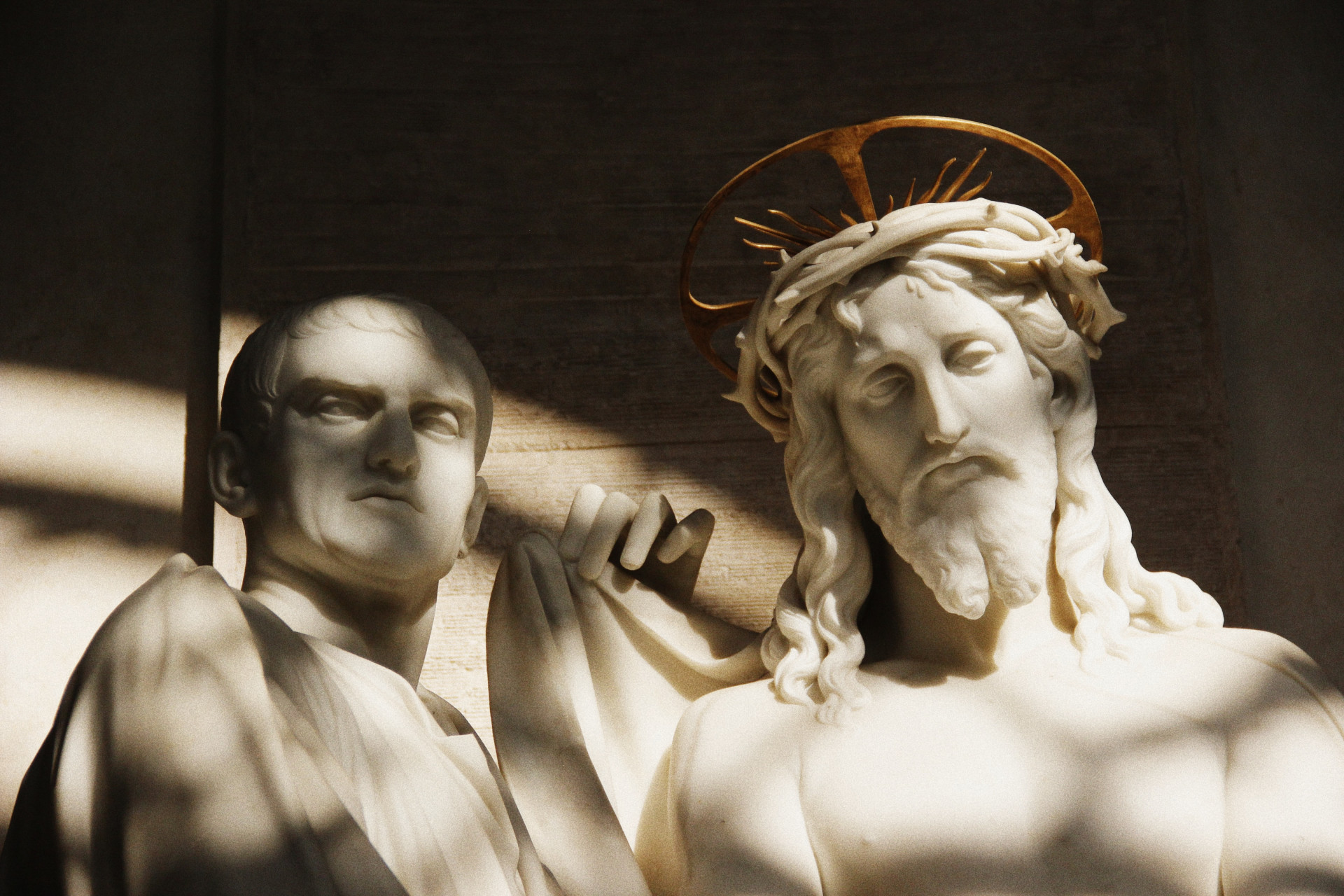by The Very Revd Hugh Dickinson
The image of kingship is deeply embedded in Christianity. Jesus proclaimed the coming of the Kingdom of God. When he was on trial before Pontus Pilate the crucial issue was the allegation made by the Temple Priests that he was claiming to be the Messiah King, and leader of a popular rebellion against Rome.
“So, you are a King, are you?”
“Is that what you are charging me with?”
“No. I am not a Jew. It’s what the Jews are charging you with.”
“Yes. I am a King. But not what they – or you – mean by that word.”
“What do you mean?”
“My Kingdom is not anything to do with Rome or its Empire. If it were I would be plotting an armed rebellion. I refused to allow my followers to resist my arrest.”
Pilate realises that Jesus is being falsely accused because he has offended the priests on some religious issue. He is not a troublemaker. But they have got Pilate in a trap.
“If you let this man go you are no friend of Caesar’s!”
“Shall I crucify your King?”
“We have no King but Caesar!”
The ultimate apostasy.
The question has gone on haunting Christianity for two thousand years. What kind of King is Jesus? No one has done so much to force us to face that question as William Shakespeare. Simon Schama is one of the most eloquent and perceptive contemporary commentators on Shakespeare’s plays, drawing our attention to the tumultuous political setting of 15th and 16th Century England onto which Shakespeare focuses the spotlight of his genius, not only the genius of his poetics, but the genius of his deep insight into the beating human hearts of Kings and beggars, of fathers and daughters, of lovers and evil monsters, of loveable rogues and men and women caught in the pitiless machineries of human life and the ecstasies of human love.
In all this tumult it is his analysis of Kingship which haunts us. Can a King be human? Falstaff is the most riotously human of Shakespeare’s inventions – Queen Elizabeth adored him – but Henry coldly kicks him out, and almost, but not quite, snuffs out his own humanity. King Lear discovers his own penniless humanity when he carries the body of his dead daughter in his arms. As backcloth to this stage on which Shakespeare forces us to look in his mirror there is the image of a young man dying in agony nailed to two planks of wood. Over him is fastened a scribbled title:
The King Of The Jews.
“No! Not that, not that!”
“What I have written, stays written!”
Scripta manent
What kind of King could Jesus be? Well clearly not like any other man who might be a model. Henry VIII? Bloody Mary? James I? Charles I? Charles Ii ? Charles III?
The key to the mystery of Christ’s Kingship lies in a mystic’s prayer:
Please, Lord,
Make within my poor shabby heart an empty, hollow space, in which you and your love can have your home.That empty place is where the sovereignty of God is to be exclusive and absolute. There is no room for any of the regalia or ceremonial trappings which we trundled out for the coronation of Charles III, nor for the cultural baggage which still sticks to it as if fixed with Velcro, nor for economic and political power plays which so disfigure it. Contemplative Prayer is the practice of detachment or self-emptying, a potentially joyful activity, because it is accompanied by the infilling of our empty hollow by the loving and enfolding embrace of the Creator Spirit, who is present to us and in us, like the field of gravity permeating the whole universe.
The idea of Kingship messed up our heads by co-opting the numinous awe we feel in the presence of huge power in the natural world — thunder storms, earthquakes, typhoons, volcanoes, eclipses, the seasons — and endowing it with the potent symbols of our social hierarchies. The Divine right of Kings is purloined by theft. So what is royalty? It is an empty O like zero in mathematics, a useful device to facilitate computation. But Divinity is a primal attribute of the Cosmos, like Beauty and Truth. Its place is in the human heart. When the contemplative soul makes space for the Divine Love that love and that Lover comes to rest there and it becomes “Partaker of the Divine Nature,” one with the Royal We, enthroned in every human heart.

Hugh Dickinson
The Very Revd Hugh Dickinson was Dean of Salisbury Cathedral from 1986 until his retirement in 1996. Through his leadership and vision, governors and trustees founded Sarum College in 1995, a year after the closure of Salisbury & Wells Theological College. The photo of Hugh was taken during his address to mark Sarum College’s 20th Anniversary in September 2015 (ashmills.com).

Leave a Reply